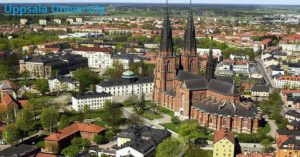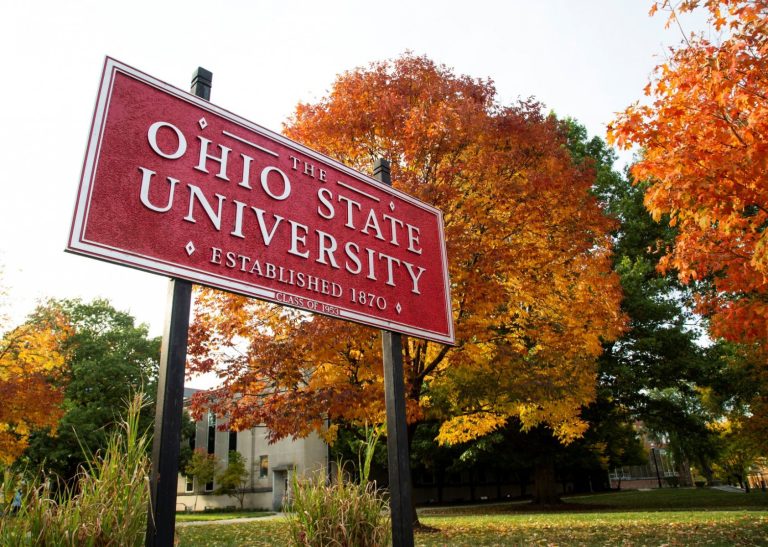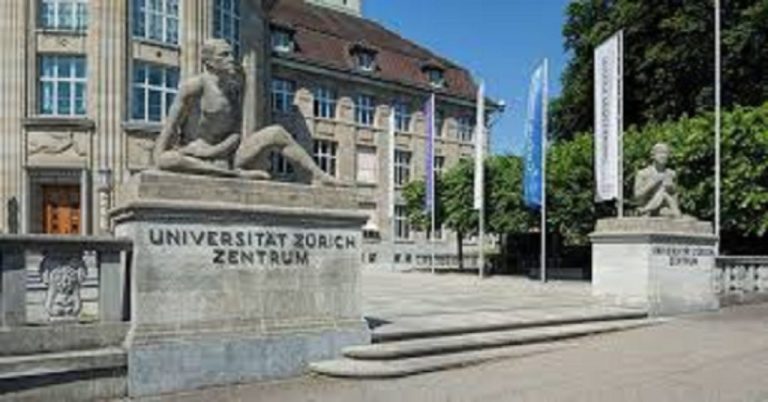
The Department of Materials Science and Engineering aims to be an environment for successful and valuable research and education with a focus on materials science solutions for important societal challenges. Our department is an exciting workplace with research in a broad technology-related area, from basic research to large-scale applied research, and with close contacts with students through the department’s involvement in engineering and master’s programs. Our research and teaching are conducted within seven divisions with different research focus.
BioMaterial Systems (BmS) is a research group in the Division of Biomedical Engineering at the Department of Materials Science and Engineering at Uppsala University. The focus of the group is on the use of additive manufacturing (AM, or 3D-printing) to develop new biomaterials and implant designs. There are currently approximately 20 people in the research group. More information on the profile of the research group can be found at: https://www.uu.se/en/department/materials-science-and-engineering/research/divisions/biomedical-engineering/biomaterial-systems.
This recruitment is connected to the Wallenberg Initiative Materials Science for Sustainability (WISE, wise-materials.org). WISE, funded by the Knut and Alice Wallenberg Foundation, is the largest-ever investment in materials science in Sweden and will encompass major efforts at Sweden’s foremost universities over the course of 10 years. The vision is a sustainable future through materials science. Read more: https://wise-materials.org
All early-stage researchers recruited into the WISE program will be a part of the WISE Graduate School, https://wise-materials.org/research-school/, an ambitious nationwide program of seminars, courses, research visits, and other activities to promote a strong multi-disciplinary and international network between PhD students, postdocs, researchers, and industry.
Project description: Additive manufacturing (AM), or 3D-printing, has enabled not only a complete freedom-of-design of components, but also the development of alloys with new compositions and with tailored microstructures, potentially allowing for lower material and fuel usage in the case of light-weight alloys, and corrosion rates that are more adequate for use in temporary implants. However, process parameter development for AM is complex, time-consuming and very costly, including high amounts of material and energy waste, and even more so for particularly challenging alloys such as Mg-based ones, which require substantial research efforts. In this project we will develop machine learning models to i) enhance the efficiency of the process development, as well as to ii) develop a better understanding between process parameters and the resulting microstructure, as applied to Mg-based alloys. These alloys are promising for applications in the aerospace and transport industry, as well as biomaterials.
Work duties: The work duties within this interdisciplinary research project include conducting high-quality research, in collaboration with other team members, from the design and implementation of methods to analyze existing and new experimental data derived from powder bed fusion with laser beam (PBF-LB) of Mg-based alloys, to results analysis and finally publication of the work. The work involves, among other things, to develop and use numerical models to predict a printed material’s properties as well as to develop processing parameters for additive manufacturing of improved materials. The focus will be on the numerical modelling part of the project, and experimental testing will be done with colleagues. The work also includes analyzing the results and, through scientific articles and presentations at international conferences, spread the new knowledge.
The position may include some supervision of students in undergraduate and postgraduate education.
Qualification requirements: To qualify for an employment as a post-doc, you must have a doctoral degree, or equivalent. The PhD degree should have been obtained no more than three years prior to the date for decision of employment. The three-year period can be extended due to circumstances such as sick leave, parental leave, etc.
For this position, a PhD in Computational Engineering, Machine learning, Control engineering, Signal processing, Computational statistics, Mechanical Engineering, Biomedical Engineering, Materials Engineering, Engineering Physics, or related fields is required. We require documented knowledge and a strong interest in numerical modelling and materials science.
We require very good written and oral skills in English as well as very good scientific writing skills.
We require the ability to work in a focused and structured manner within given time frames, both individually and in a team, and to be able to collaborate in an interdisciplinary environment with colleagues both within and outside the department.
When assessing applications, special emphasis will be placed on applicants’ documented experience of publishing scientific work in high-quality journals and giving presentations at scientific meetings.
Additional qualifications: Documented experience of the application of artificial intelligence to materials science and/or metallurgical processes is a very good merit. Documented experience in additive manufacturing of metals and/or modelling of the same is also considered a very good merit, in particular using powder bed fusion methods. Documented experience in image analysis is a good merit. Experience in obtaining external research grants is a very good merit.
Application procedure:
The application shall include:
- Cover letter including a short description of yourself, your research interests and why you are suitable for the position (max 2 pages)
- CV (max 2 pages)
- List of publications
- Copies of 3 publications of particular relevance
- Copy of your PhD and MSc degree, grades and other merits of relevance. Translations into English or Swedish if the original documents have not been issued in any of these languages.
- Name and contact information to at least two reference persons (e-mail address and phone no.).
The application shall be written in English.
Salary: Individual salary.
Starting date: As soon as possible or as otherwise agreed.
Type of employment: Temporary position 2 years according to central collective agreement.
Scope of employment: 100 %
Placement: Uppsala
For further information about the position please contact: Prof. Cecilia Persson, cecilia.persson@angstrom.uu.se , or Assoc. Prof. Jonas Lindh, jonas.lindh@angstrom.uu.se
Please submit your application by 5 December 2024 , UFV-PA 2024/3848
Uppsala University is a broad research university with a strong international position. The ultimate goal is to conduct education and research of the highest quality and relevance to make a difference in society. Our most important asset is all of our 7,600 employees and 53,000 students who, with curiosity and commitment, make Uppsala University one of Sweden’s most exciting workplaces.
Read more about our benefits and what it is like to work at Uppsala University
https://uu.se/om-uu/jobba-hos-oss/
The position may be subject to security vetting. If security vetting is conducted, the applicant must pass the vetting process to be eligible for employment.
Please do not send offers of recruitment or advertising services.
Submit your application through Uppsala University’s recruitment system.Placement:Disciplinary Domain of Science and Technology, Faculty of Technology, Department of Materials Science and EngineeringScope:Full timeWorking hours:100%Type of employment:Temporary positionPay:Individual salaryNumber of positions:1Town:UppsalaUnion representatives:
- Seko Universitetsklubben seko@uadm.uu.se
- ST/TCO tco@fackorg.uu.se
- Saco-rådet saco@uadm.uu.se
Number of reference:UFV-PA 2024/3848Last application date:5 December 2024



